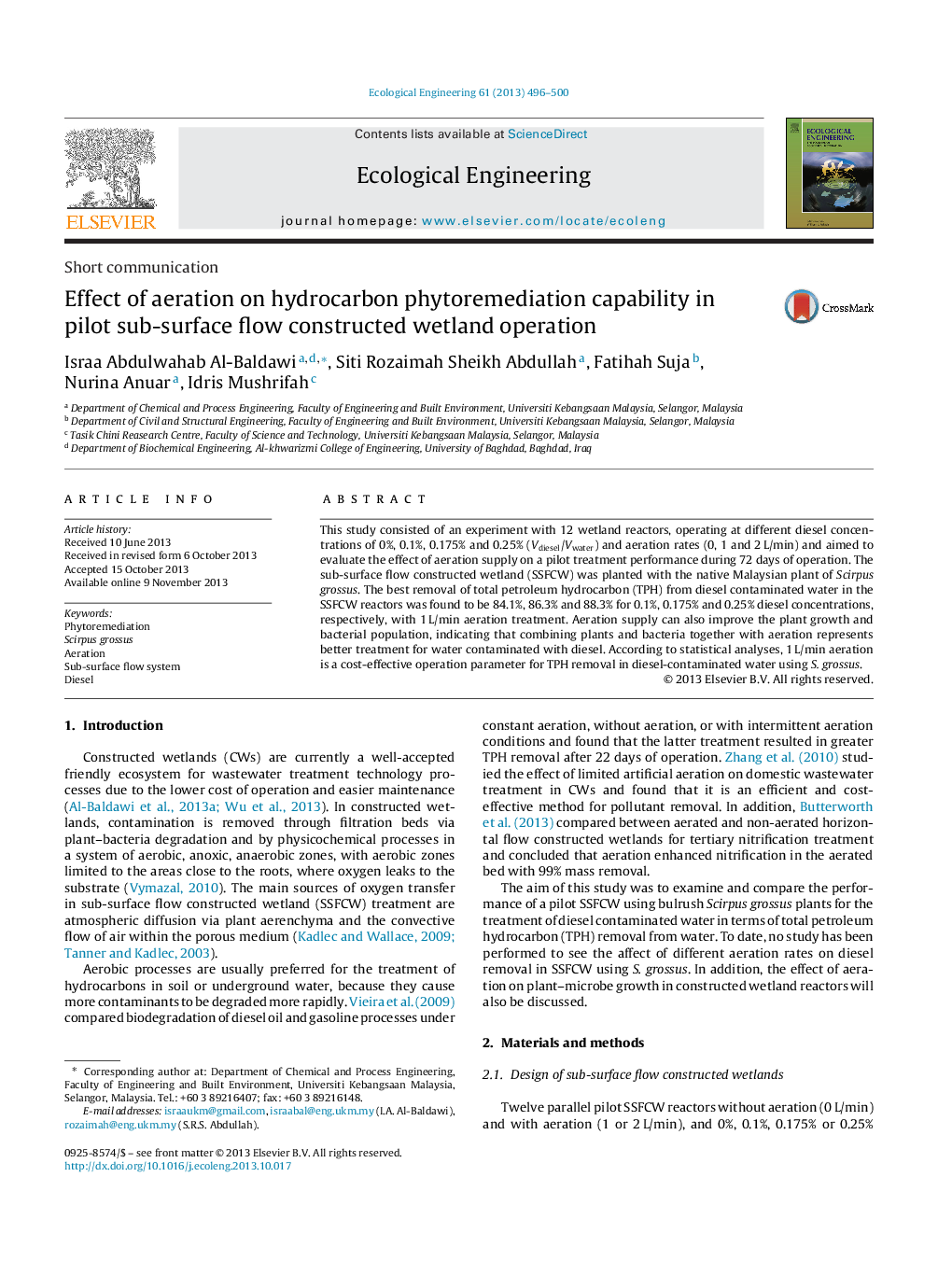| Article ID | Journal | Published Year | Pages | File Type |
|---|---|---|---|---|
| 4389515 | Ecological Engineering | 2013 | 5 Pages |
Abstract
This study consisted of an experiment with 12 wetland reactors, operating at different diesel concentrations of 0%, 0.1%, 0.175% and 0.25% (Vdiesel/Vwater) and aeration rates (0, 1 and 2Â L/min) and aimed to evaluate the effect of aeration supply on a pilot treatment performance during 72 days of operation. The sub-surface flow constructed wetland (SSFCW) was planted with the native Malaysian plant of Scirpus grossus. The best removal of total petroleum hydrocarbon (TPH) from diesel contaminated water in the SSFCW reactors was found to be 84.1%, 86.3% and 88.3% for 0.1%, 0.175% and 0.25% diesel concentrations, respectively, with 1Â L/min aeration treatment. Aeration supply can also improve the plant growth and bacterial population, indicating that combining plants and bacteria together with aeration represents better treatment for water contaminated with diesel. According to statistical analyses, 1Â L/min aeration is a cost-effective operation parameter for TPH removal in diesel-contaminated water using S. grossus.
Related Topics
Life Sciences
Agricultural and Biological Sciences
Ecology, Evolution, Behavior and Systematics
Authors
Israa Abdulwahab Al-Baldawi, Siti Rozaimah Sheikh Abdullah, Fatihah Suja, Nurina Anuar, Idris Mushrifah,
